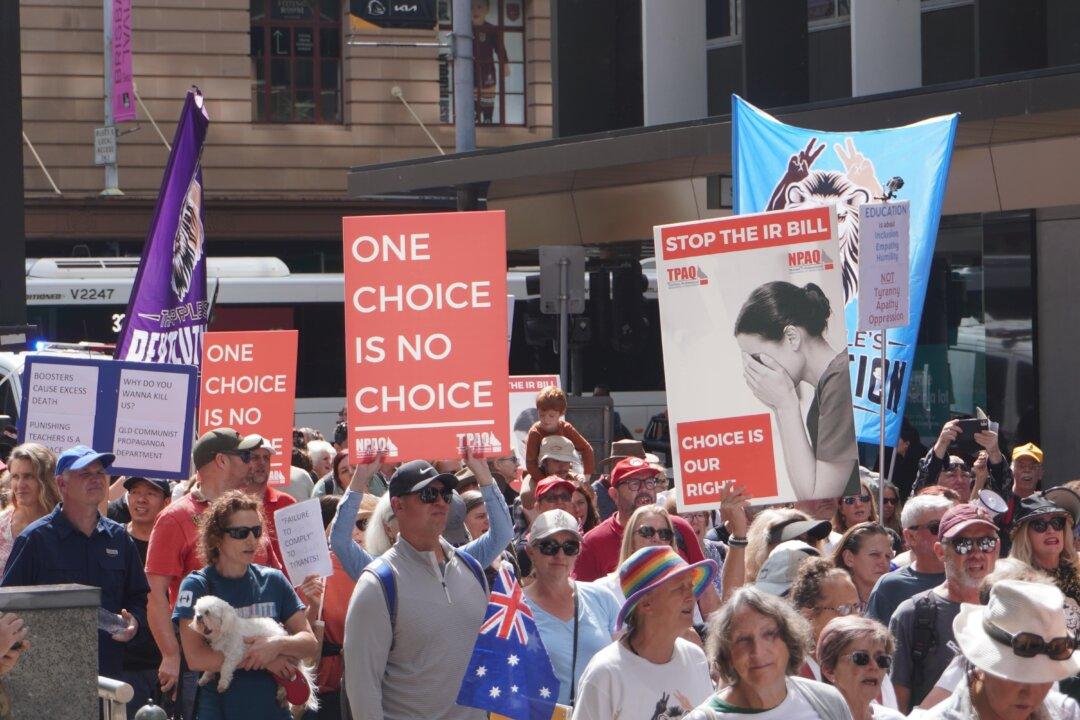The head of the start-up Red Union—formed in response to the vaccine mandates—is vowing to fight the Queensland Labor government’s decision to effectively bar the organisation from operating in the state.
On Oct. 28, the Palaszczuk government passed the Industrial Relations Amendment Bill, which tightens the criteria for registering new employee organisations, side-lining Red Union and its affiliate nursing, teaching and business unions.





